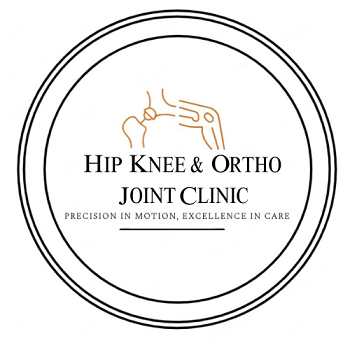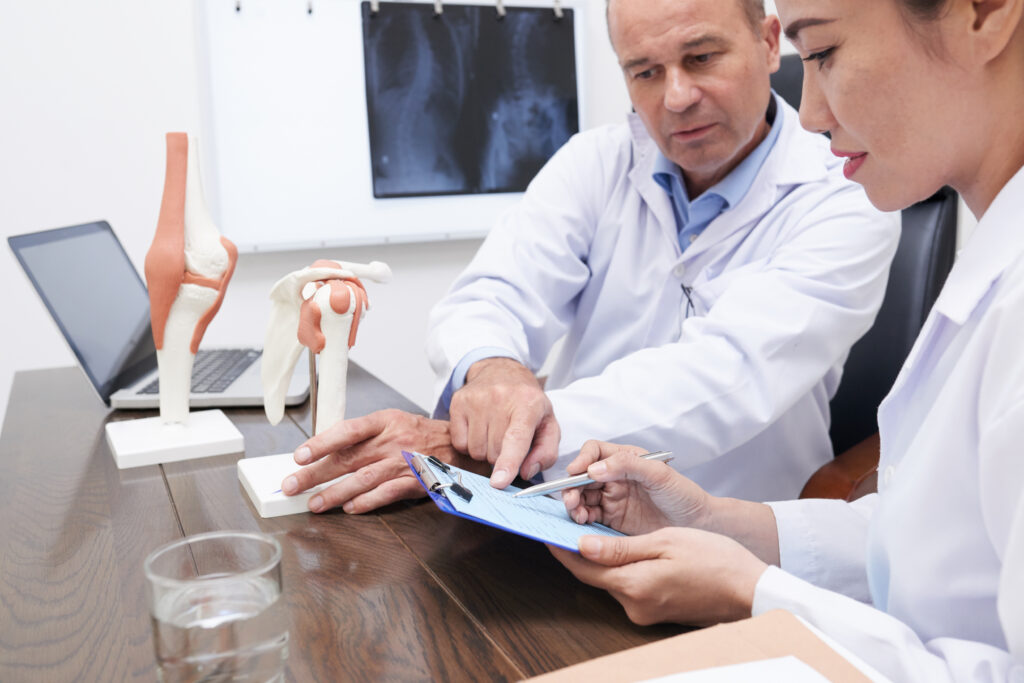Common Orthopaedic Problems Seen in OPD
Explore the common problems seen in orthopaedic OPD and learn the effective ways to treat them for better bone and joint health.
Day after day, I meet patients who come to my clinic with the following concerns:
- I have sore knees, doctor, and they bother me every time I come up the stairs.
- I have a sore pang in my hip that will not clear.
- I have something heavy, is killing me now.
These are a few of the most prevalent orthopaedic OPD problems that people experience. The good news? They can be managed at a relatively early stage and most of them can be treated. The doctor’s expertise in hip and knee replacement in Indore also contributes to showing the patients how to manage all daily pains and injuries in the joints and injuries with the proper dose of the treatment and care.
We can go over the problems that I see mostly and how we can collaborate to deal with them.
1. Knee Pain & Arthritis
One of the most common complaints in my clinic by far is knee pain. At other times it is because they have been injured, but more commonly it is because of osteoarthritis a wear-and-tear disease in which the knee joint loses its cushioning gradually.
What patients usually feel:
- Soreness in walking or climbing stairs.
- Swelling and stiffness
- Difficulty sitting with cross-legged or getting out of a chair.
Treatment approach:
- Basic lifestyle modifications such as weight control and low impact activities.
- Painkillers or shots.
- In case of advanced arthritis, the knee replacement surgery in Indore provides relief in the long run.
2. Hip Pain & Mobility Issues
Hip pain is often confused with back pain, and hip issues are prevalent particularly among the elderly. The groin or thigh pain is usually caused by arthritis, injuries or diseases such as bursitis.
What patients usually feel:
- The pain becomes worse with walking.
- Painful walking or turning around in the bed.
Less hip flexibility.
- Treatment approach:
- Strengthening exercises and physiotherapy.
- Anti-inflammatory drugs or shots.
In extreme cases, hip replacement surgery restores mobility and relieves pain.
3. Back Pain
Virtually everybody has some time in their life when they have back pain. In some cases it is as easy as a muscle strain but in a few other cases, it can be a slipped disc or as a result of aging, the spine changes.
What patients usually feel:
- Stiffness in the lower back
- Radiation of pain down the legs (sciatica)
- The inability to bend or stand-up long distances.
Treatment approach:
- Exercises to correct posture and strengthen the back.
- Physiotherapy sessions
- Minimum invasive surgery to the spine in case pain does not go away.
4. Fractures & Injuries
Fractures may occur due to accidents, falls or even minor slips. These require emergency care to ensure that the bone heals.
What patients usually feel:
- Severe pain and swelling
- Perceptible limb deformity.
- Failure to flex the joint or to support weight.
Treatment approach:
- Casting or bracing for simple fractures
- Complex cases of surgery and implants.
- Trauma from the fall to rehabilitate and restore full movement.
5. Sporting Injuries and Soft Tissue issues.
Since young people are sporting or fitness enthusiasts, I frequently find patients with a tear in the ligament, tendonitis, or cartilage damage.
What patients usually feel:
- Sharp soreness during activity or exercise.
- Instability of the joints (particularly in the knee).
- The joint is swollen or stiff.
Treatment approach:
- Physiotherapy, rest and bracing.
- Keyhole (arthroscopic) surgery of ligament rupture or meniscus rupture.
Common but highly manageable orthopaedic problems include knee arthritis, hip pains, fractures, and back pain. With expertise in hip and knee replacement in Indore, the doctor helps patients get back on their feet and live pain-free.
FAQs
Q.1 Should I visit a doctor because of mild knee pain?
Yes, in particular when it lasts over a week or when it influences the activities of everyday life. An early treatment eliminates aggravation.
Q.2 Is the only choice of arthritis surgery?
Not at all. The majority of patients do well on medicines, physiotherapy, and lifestyle changes. Only advanced cases are treated by surgery.
Q.3 What is the average recovery time after knee replacement or hip replacement?
The majority of the patients begin to walk in a few days. Full recovery with physiotherapy normally requires between 6 and 12 weeks.

